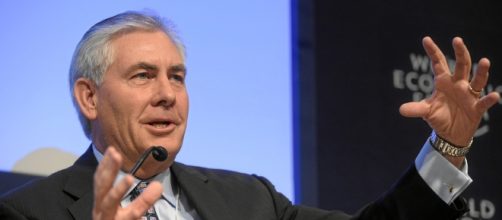Exxon Mobile Corp on Thursday sued the Trump administration for allegedly violating a $2 million sanction for a joint oil company with Russian Rosneft as an unlawful and capricious sanction.
The US Treasury hit the biggest oil producer on Thursday with a fine for disdainful contempt of U.S. sanctions in relation to Russia in 2014, when Secretary of State Rex Tillerson was still in charge of Exxon Mobil. A detailed statement by the U.S. Treasury about Exxon Mobil's behavior was a direct confrontation between the American oil giant and the U.S. government, which made it even more surprising, as the former head of Exxon is now in Donald Trump's presidential cabinet as the Secretary of State.
Exxon's suit against the US government
Exxon has taken the government to court despite the fact that the maximum fines allowed will have little impact on the company, which last year made a profit of $7.84 billion. The fines were imposed after examining the U.S. deal signed by Exxon with Rosneft, the largest Russian oil producer, on Sunday following the sanctions by the U.S. on Moscow for the annexation of the Crimean region of Ukraine.
The articles signed by Exxon's executives
In May 2014, Executive Directors of Exxon from Washington signed eight articles with the head of the state-owned Rosneft Igor Sechin, the OFAC website said. OFFAC said Exxon has casually neglected the terms of sanctions in the United States by signing an agreement with Sechin.
The U.S. Treasury Department placed punitive penalties on Sechin in the month of April 2014 as part of the measures to put pressure on Russia over its annexation of parts of Ukraine.
Sanctions forbid American citizens to deal with those people on the black list, Rosneft is subject to close American sanctions that give U.S. citizens the permission to have any dealing with the firm in some aspects.
Exxon stated that OFAC's "extremely unfair" and turned to the U.S. courts in an attempt to dismiss the decision.
The claim made by Exxon
In a 21-page appeal, Exxon claims that Sechin was subjected to sanctions that apply only to the personal assets of the sanctioned persons, and stressed that sanctions do not restrict the transaction with the firms managed by those sanctioned.
Tillerson left Exxon at the end of last year after ten years of work for the company and is now in charge of making foreign policy decisions that include assistance in making decisions about sanctions.


